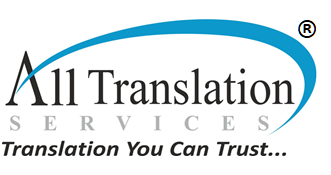Will Dependency on AI Translation Leave Professionals Jobless?
The translation industry has gone through tremendous growth over the years. With the rise of machine translation and the advent of software, many companies have efficient ways to meet clients’ needs.
Artificial intelligence makes it easy to automatically undertake huge translation projects based on the main body of translated text.
Well, this means the machine can learn from past translations and improve language accuracy within the shortest time possible. Hence, AI translation helps handle long texts and complex language pairs. Machine translation guarantees quick results and is easily accessible.
These are some of the few perks of AI translation and have been drawing a lot of attention. Many experts in the field, stakeholders, and customers have been raising a lot of questions and doubts about dependency on this technology. Many wonder how efficient machine translation is, while others feel their jobs are under siege.
Now all this leaves one key question. Will AI replace human translators? The good news?
From the viewpoint of the notable disadvantages of AI translation, human translators will remain relevant in the field. If you offer translation services, don’t stress about losing your job.
Don’t be afraid because AI translation exhibits accuracy issues, fails to translate different expressions used in daily speeches, and much more.
Why AI Will Replace Human Translators- Key Things to Know
AI software has proven to be competent in translating different projects. But the stark reality is that they cannot completely replace human translators. What motivates many translation services providers is that AI technology will increase rather than take away human’s jobs.
Human translation services will remain in high demand. Here are aspects that will spur you to pursue online translation without any worries about being replaced by machines:
Humans Can Easily Express Their Feelings
Humans depict their emotional intelligence all the time and understand the needs of others. They can interact with clients and know what they need from their projects. While offering translation services, they will gain information from non-verbal signals. Machines are not empathetic or culturally sensitive.
Humans Are Mindful of Tone and Style
Human understanding of style and tone is beyond machines’ thought. Most translation documents come in different styles and tones, meaning and machines will easily miss these qualities. Humans can easily translate texts with witty and persuasive tones to ensure they are accurate. With machine translation, losing touch with the original work is easy.
Can Keep Up with Language Changes
Dialects evolve over time, and you’ll need the right translation services. Grammar will evolve when a new expression hits town and appears in a specific language. For instance, some phrases used a few decades ago will be obsolete today.
To rely on AI translations, you must update your software constantly, which can be expensive. Human translators are cheaper, flexible, and will not deal with such difficulties.
Machines Don’t Understand Human Cultures
Cultural translation involves understanding an inherent vocabulary split between dialects. Machines fail to translate word-for-word, where one text has a specific meaning in one culture but differs from another. These can lead to confusion, inaccurate definition, and obscene results. Human translators will take time to understand a language, detect nuance in a text and provide accurate results.
Final Thoughts
AI translation is an evolving technology, and translation companies should invest in it wisely. It is poised to fuel explosive growth in the industry, especially if a language translation company hires more translators. Translators also need to focus on less widely spoken languages, especially in specialist, scientific, or technical subjects. Most importantly, they should learn and get used to working alongside machines. AI software can handle much work, but a human translator will make the job much easier.
